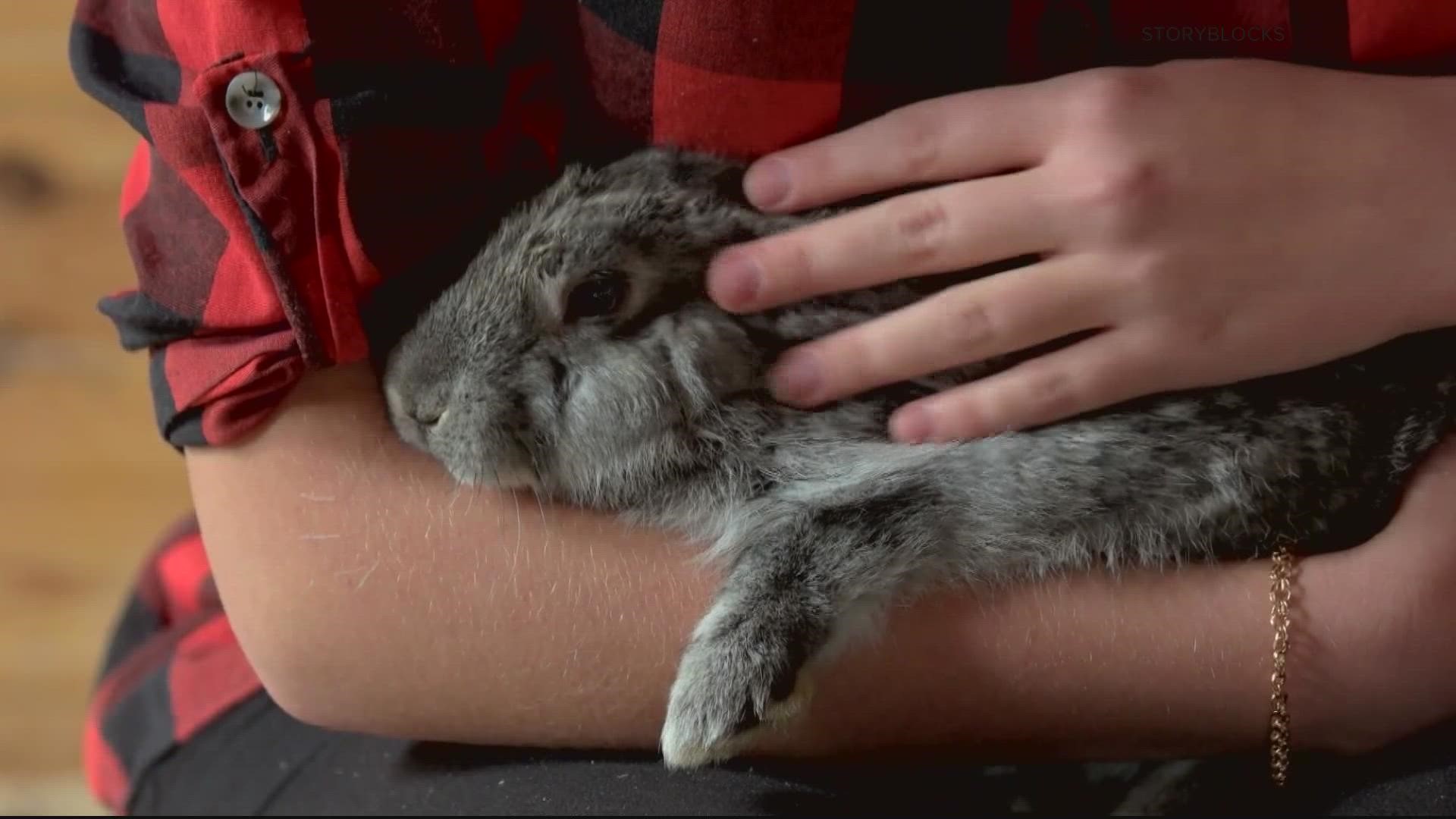WASHINGTON — People around the world will celebrate Easter this weekend–a Christian celebration of rebirth, and a holiday emblematic of the joy of spring—and, for many, the joy rabbits can bring.
The Easter bunny might be tugging at your heartstrings and leading your family to get a pet rabbit of your own. However, posts around social media discourage this, saying rabbits are usually dumped at shelters once the “Easter bunny” excitement has faded.
While it’s important to do research no matter the time of year, animal adoption experts say a bunny for your basket isn’t always a bad idea.
THE QUESTION
Is there a jump in rabbit surrenders around the country after Easter?
SOURCES
- Lindsay Hamrick, Director of Shelter Outreach & Engagement
with the Humane Society of the United States - Beth Woolbright, interim executive director of The House Rabbit Society
THE ANSWER
While some shelters may see this, there’s no evidence this happens on a nationwide scale.
WHAT WE FOUND
Both of our experts say there’s not really any data to prove this happens, at least not on a large scale.
“We've heard both; we've heard organizations that say that they get flooded with rabbits after Easter,” said Hamrick. “And we have organizations that say that they've looked at their data over the last 15 years, and it's never happened.”
Woolbright says it’s a year-round problem—especially among those who adopted rabbits during the COVID-19 “stay at home” days, and are now looking to off-load the pets.
“And so the shelters and rescue groups are full of rabbits who are looking for a permanent home,” she said.
Rabbits often wind up in shelters when owners lives’ change–or they realize rabbits are a bit more work than expected: house bunnies can live for a decade or more, need hours of exercise, and can be quite particular, Woolbright laughs.
“They're not cuddly toys that you can do whatever you want with. They are social, intelligent, sometimes goofy, sometimes silly companions,” said Woolbridge. “Rabbits are great for the right people. Not everybody should have a rabbit.”
Do your research to find out if a rabbit is the right addition to the family, no matter the time of year—especially if you’re really itching for a real-life Easter bunny, says Hamrick.
“We would love for them to go to a shelter. And it doesn't change the way that that shelter counsels a family about what's needed for the bunny and the long-term care,” she said. “And so if we can increase adoptions this time of year by sort of playing off of the Easter piece, then we're fully supportive of that. Our end goal is that animal shelters would be able to place all of the animals that come into them for a new home.”
In fact, Hamrick says it’s an old idea that gifted animals, in a basket or otherwise, are always a bad thing.
“Actually, the research is pretty clear that pets given his gifts are not more likely to be surrendered,” she said. “And in fact, they may be less likely to be surrendered, because the person who gifted the pet has a bond with the person who received it.”
Still, you’ll need to know a lot more than that to know if a rabbit is right for your household.
“The place to go is your local shelter or a rescue group,” said Woolbright.
“They can help answer questions, and figure out if a rabbit would really be a great fit for your family,” added Hamrick.
If you have a pet rabbit or any animal that’s becoming too much, please do not let it into the wild. Shelters and rescues have programs to help you make it work—or will help find that bunny a new home. Contact the House Rabbit Society or The Humane Society of the United States to find more information as well as a local organization that can help.
Sign up for the Get Up DC newsletter: Your forecast. Your commute. Your news.
Sign up for the Capitol Breach email newsletter, delivering the latest breaking news and a roundup of the investigation into the Capitol Riots on January 6, 2021.

